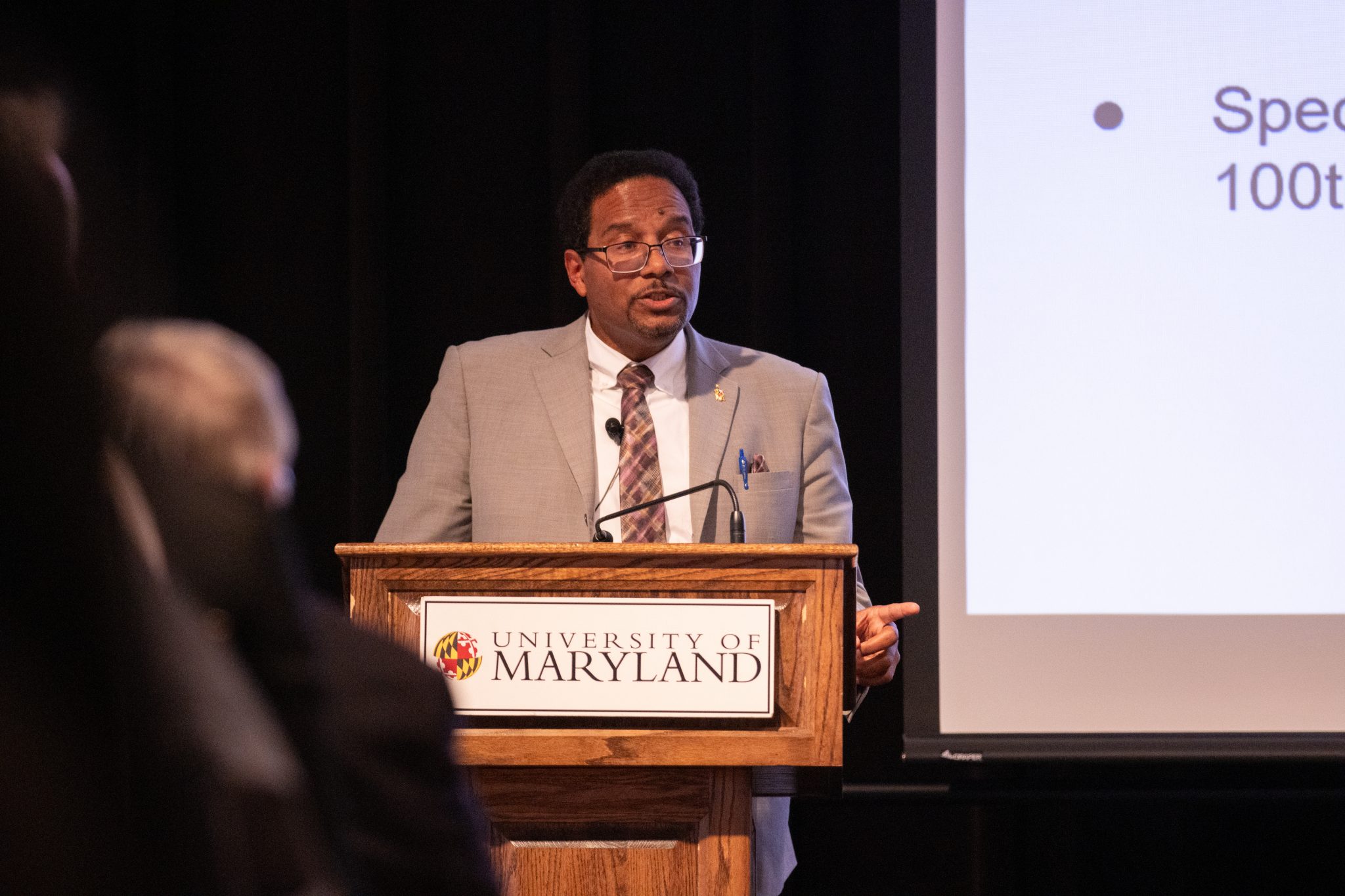University of Maryland president Darryll Pines outlined plans for the university to adapt and respond to recent executive orders from U.S. President Donald Trump during his biannual State of the Campus address at Thursday’s University Senate meeting.
During his speech, Pines warned the audience of the threats the Trump administration poses to research funding, the federal workforce and higher education institutions.
“It is clear that the situation in Washington, D.C., represents an evolving and significant threat to higher education, with a range of actions negatively affecting and impacting the operation of universities,” Pines said.
Pines detailed this university’s “strategic and tactical response” to combat the orders, which includes keeping community members informed, partnering with higher-education advocacy groups and legally challenging executive orders.
This university has created a website that keeps track of Trump’s executive orders and offers guidance for students, faculty and staff, Pines said. The website provides descriptions of the orders and their effects on research funding, diversity, equity and inclusion and immigration enforcement.
Pines also reaffirmed this university’s commitment to challenge orders that it considers “not legal,” citing its recent involvement in a lawsuit against the National Institutes of Health.
NIH issued guidance in February that said it would cut hundreds of thousands of dollars in funding to major research institutions, including this university.
[UMD faculty, researchers criticize planned NIH research funding cuts]
The guidance said NIH would cap rates for indirect research funding at 15 percent. This university currently charges 56 percent in indirect costs for on campus projects, The Diamondback previously reported.
Indirect research costs are expenses related to facility maintenance and administrative management, including property improvements and equipment upgrades.
The lawsuit alleged the cuts would “devastate” public university research and violated Congress’s power of the purse — the ability to control government spending. A federal judge blocked the order on Wednesday, the Associated Press reported.
Pines also introduced an initiative to form an administrative and Senate leadership group to develop a financial plan and create a web-based campaign to highlight the importance of university research.
“We have to really rebuild this trust with the American public,” he said.
On Wednesday, the Associated Press also reported that a new Trump executive order calling to close the Department of Education could come later this week. The report comes just days after the U.S. Senate confirmed Linda McMahon as education secretary on Monday.
The education department allocates billions of dollars in federal funds to colleges, universities and schools every year for research and financial aid, while also overseeing many federal student loan programs, according to the Associated Press.
[Trump’s plans to weaken education department could hurt higher education, experts warn]
Experts say weakening the department could significantly impact higher education institutions and students’ abilities to pay for college, The Diamondback previously reported.
But Pines reassured senators that this university will retain control of many educational areas amid uncertainty about the department’s future.
The education department does not “have the authority to control classroom instruction or force colleges to restrict First Amendment rights,” he said.
Some senators expressed concerns about this university’s response to some federal government actions.
During the address’ Q&A period, Senator Isaac Moradi, a researcher at the university’s Earth System Science Interdisciplinary Center, said he is worried the federal government will attack termination notice policies at higher education institutions .
“The executive orders become effective immediately,” Moradi said. “If this happens, apparently we are going to come to the morning and find out that we are fired.”
Ivy Lyons, a journalism doctoral student and graduate senator, criticized the administration’s lack of direct solutions to issues. While keeping track of federal government updates is important, Lyons said creating a tangible action plan in response to them is crucial.
“It seems like the administration recognizes that there [are] some real, uphill battles that they need to go through, ” Lyons told The Diamondback. “Curiously, there wasn’t a real way to directly answer questions that were put to Pines.”



